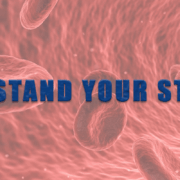Thyroid Problems and Hair Loss: Key Insights
By Kimberly Vaughn, Advanced Trichologist, Certified Nutritional and Hair Loss Coach, President of HPIHair of Nashville, Tennessee
An estimated 80 million Americans deal with hair loss, while 20 million Americans are estimated to have some thyroid problems. A significant number of these people may find that their thyroid problems and hair loss are directly connected. Yet, this link is not well-known, even among the medical community. If a physician is aware of it, the complexities of diagnosis are often misunderstood. Nevertheless, hair loss is one of the first symptoms an endocrinologist might see if there is a problem with the thyroid.
Despite its small size, the thyroid has a significant effect on many of the body’s organs and systems. It is a butterfly-shaped gland located at the base of the neck right below the Adam’s apple. Why is it so important? “The thyroid controls the metabolic rate of the body, which is how you convert food into energy. The function of every cell depends on the proper function of the thyroid gland and its hormones,” says Lynn N. Ellington, an M.D. in obstetrics and gynecology and founding partner of the Womens Group of Franklin, Tennessee. (Dr. Ellington is also a frequent guest of the ThyroidHairLossConnection podcast).
Our thyroid can be hyperactive as in hyperthyroidism or hypoactive as in hypothyroidism. Hashimoto’s disease is an autoimmune disorder that causes hypothyroidism, and Graves disease is an autoimmune disorder that causes hyperthyroidism. Many people mistakenly think that only hypothyroidism is associated with hair loss, but any of these thyroid conditions may include hair loss and related symptoms.
“Regardless of the cause of the thyroid imbalance,” says Dr. Ellington, “if the thyroid hormones are too high or too low, the body can lose more hair follicles than it can replace, thus resulting in hair loss overall. With hypothyroidism, there is a normal amount of hair loss, but the new hair growth is slowed so there is a net loss of hair. With hyperthyroidism, the replacement is normal, but the amount of hair loss on a daily basis is accelerated. Thus, there is also a net loss of hair with this condition.”
Besides hair loss, the most common symptoms of hypothyroidism include: fatigue, weight gain, cold intolerance, dry skin, joint and muscle pain, and depression. Common hyperthyroidism symptoms include (besides hair loss): anxiety, heat intolerance, concentration problems, and goiter.
Of course, the thyroid is a gland that produces hormones: T1, T2, T3, and T4. Medicine actually knows very little about T1 and T2, but we know that T3 and T4 help oxygen enter our cells, which helps the body produce and use energy. In this way, it plays a vital role in metabolism.
To diagnose thyroid problems and hair loss, a comprehensive blood panel must be conducted, including:
- TSH
- Free T4
- Free T3
- Reverse T3
- Thyroid antibodies
- SHBG (Sex Hormone Binding Globulin)
- Total T4
- Total T3
- It would take an entire article to discuss the significance of each of these markers. Unfortunately, however, due to insurance issues or perhaps lack of knowledge, doctors may only run tests for TSH and Free T3. These are not enough to get a full picture of the thyroid’s function and whether hair loss can be attributed to it. The numbers for each of these markers must be evaluated together, and sometimes, other hormonal issues might be involved. You can see why a diagnosis can be complex.
Vitamins, Minerals, and Diet

If someone is ultimately diagnosed with a thyroid condition, they might be treated with antithyroid medications if they have hyperthyroidism or a synthetic hormone replacement if they have hypothyroidism. Hair loss and other symptoms may not improve with these medications, however. That is because the underlying cause of the hair loss could be a nutritional deficiency that has also caused or contributed to the loss of thyroid function.
In some cases, though, an excess of a particular nutrient can cause hair loss. This is the case with selenium, for example, so it is important to avoid over-supplementation.
Diet also plays a part in both the function of the thyroid and the potential for hair loss. There is no one-diet-fits-all approach, however, to take care of these symptoms. Everyone is different, and everyone has different nutritional deficiencies and food sensitivities. For that reason, it is recommended that people suffering from hair loss are evaluated from a holistic perspective and not just for the physical hair loss experienced. Again, hair loss is complex with many different contributing factors.
Below is a list of the most important nutrients related to the health of the hair and scalp, as well as the optimal levels for healthy, growing hair.
- Vitamin B12 – 500-900 mcg
- Vitamin D 25-hydroxy – 50-90 mcg
- Folic Acid – 10.0-20.0 mg
- Copper – 90-126 mcg
- Zinc – .75-1.01 mg
- Iron – 70-125 mg
If someone suffers from hair loss, the above labs should be checked along with the Thyroid tests mentioned. Bear in mind that copper and zinc can accumulate in the body, so it is recommended to test their levels every six months.
In the case of iron, a test should also be done to evaluate “transferrin saturation.” Iron can be high, while ferritin levels (a blood protein containing iron) may be low. These additional numbers reflect how your body is storing and using iron. This is because we have free radical iron that may not be processed properly due to another vitamin deficiency.
Again, the interactions between hormones, nutrient deficiencies, and organ functions must be evaluated together to determine the true reason for the symptom of hair loss.














